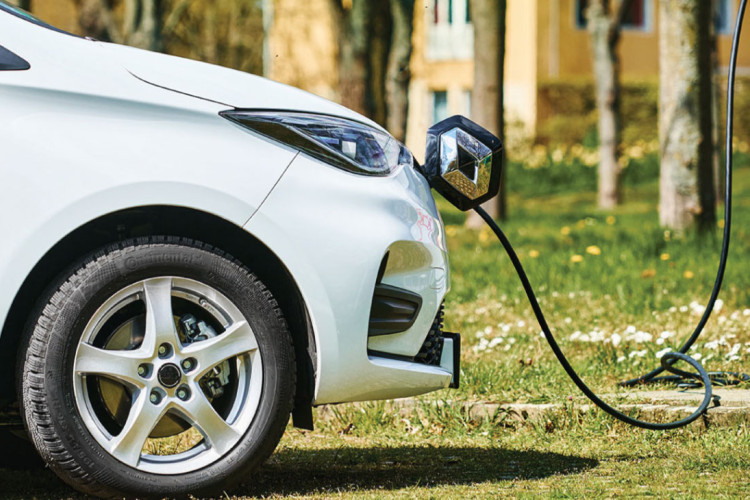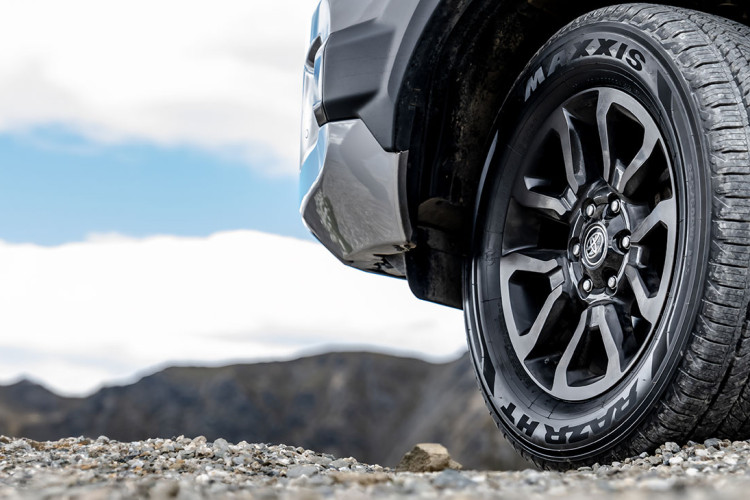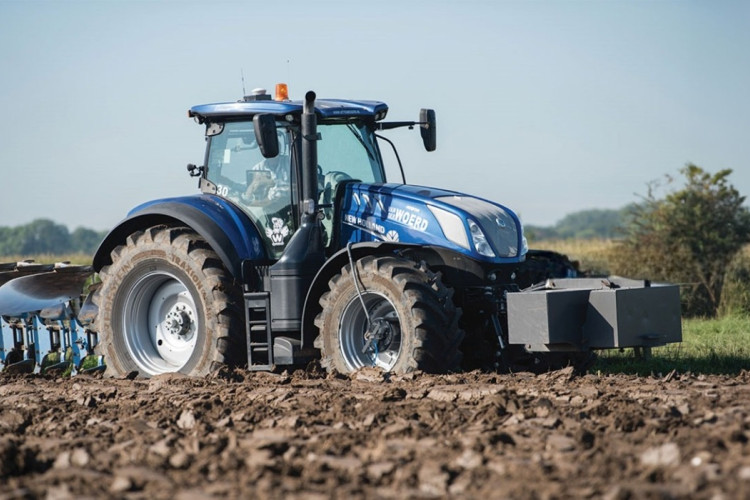How much of a vehicle's performance is determined by its tyres
When assessing the performance of a car it makes sense to look at its features. You’ll probably look at the ANCAP safety rating, check for some reviews online and maybe even ask some friends that have the make/model you have in mind. Normally, this comes up because you’re looking at purchasing a new vehicle.
But what if the vehicle itself isn’t the sole determinant of performance? What if, in some cases, the vehicle itself is not even the most significant contributor to how it performs? What if other factors are at play and those factors can make a new car perform poorly and an old car perform admirably?
Sounds complicated huh. Just wait until we dive into more detail. Here goes…
The Big Three
When it comes to a vehicle's performance there are a number of factors that have an impact. Firstly, there is the vehicle itself. The design and the specifications its built to play a significant part. Then there’s the road surface. There’s always going to be some performance issues based upon what you’re driving on. A vehicle will handle and perform significantly different from hotmix to chip seal to gravel. And then there’s the tyres. Depending upon which specific characteristic of performance you wish to measure, these three (vehicle/road/tyre) will have a direct impact on driving, to varying degrees. It’s these degrees of influence that may surprise you though.
The fine people at Continental have done their research (not surprising given their love of R&D). Let’s explore it in a bit of detail and we’ll add some of our own thoughts too.

Comfort
Let’s begin with comfort. A vehicle's performance in relation to comfort is generally measured in two ways; mechanically and acoustically.
Mechanical Comfort
What we’re talking about here really comes down to vibrations. You can measure the frequency spectrum of vibration accelerations at different axis (typically front and rear). What does this mean? It means how much you get shaken around as the vehicle moves.
Depending on the setup of the vehicle (suspension etc), it will perform differently on different surfaces. Not to mention for what purpose you need the vehicle for. The surprising thing is the vehicle itself is the smallest contributor to a measure of mechanical comfort. The road surface you are travelling is a bigger determinant of comfort, accounting for around 50%. The tyres are next, accounting for more of an impact on mechanical comfort performance than the vehicle itself!
Acoustic Comfort
Things are a little more even when it comes to acoustic comfort. This is calculated by measuring the frequency spectrum of sound pressure. Sound pressure being the difference between the instantaneous air pressure in the presence of acoustic waves and atmospheric pressure. You hear what we’re saying? It all...erm...sounds a little complicated to us too. What we need to take away from this is some vehicles are more acoustically comfortable than others. Which basically means they’re quieter. But it’s not just the vehicle itself that makes a vehicle comfortably quiet. Road surface and tyres are equally responsible.

Safety
Here’s the big one for a lot of people. Even if you judge a vehicle on its acceleration and handling, most people will still take, at the very least, a passing interest of the ANCAP results or some other markers of safety. With that in mind, let’s take a look at a few of them.
Steering Precision
Remember the days before power steering was the norm? Parallel parking was a real wrestling match match with the steering wheel in some cars. Even in the humble Austin Metro could be a pain. Power steering changed all of that. But it’s still not unusual to hop behind the wheel and find there’s some steering problems. It’s just that nowadays it’s more likely to be found in ‘steering play’. Or, as the research from Continental shows, it’s the tyres that affect the steering. Indeed, the tyres are as much responsible as the vehicle itself when it comes to the precision of steering.
When it comes to steering precision, tyres are responsible for approximately half of the overall performance.
Driving Stability
It would be no surprise here to note the biggest factor in driving stability is the vehicle itself. Electronic Stability Control has been around for a while now and the chances are your car has it. It certainly will if you plan on buying a car from March 2020 onwards. The final stage of a progressive implementation will be complete and any vehicle (new or used) imported into NZ must feature ESC.
Aquaplaning
It’s all about the road surface. Which makes sense. If the road surface was perfectly flat and at an angle suitable for rain to drain off it, then there would be very little standing water to cause an issue. However, New Zealand roads are not like that. By the way - if you want to check the condition of the roads near you (or anywhere in NZ for that matter) just head here and take a look at its official assessment. Then it comes to tyres. Your vehicle’s ability to deal with aquaplaning will vary depending on the tyre you have, how much tread it has, the tread pattern and the tyre pressure. The thing that makes the least difference in aquaplaning situations is the vehicle itself.
Traction in Wet Conditions
Again, the vehicle has very little to do with it. It’s all about the road surface and what’s trying to stick to it. That is, the tyres. First up, regardless of the brand you have wrapped around your wheels, if you have tread that’s more worn than grandpa’s hole ridden cardigan, you’re going to have issues. It’s not just about tread depth though. You have to take into account the compounds used in the tyre. Then there’s the tread pattern itself. As with most things, it pays to opt for quality tyres.
Efficiency/Economy
The ability of a vehicle to relieve you of your hard earned cash can be significant. Some more so than others. That’s why this section looks at factors associated with the running efficiency and economy of ownership.
Mileage
When it comes to the vehicle itself, Toyota has long held the top spot in the reputational stakes for longevity. Tyres are just along for the ride, right? Not exactly. Your choice of tyre might just help your vehicle last longer. That is, some tyres are safer than others and will provide better control and better stability. This reduces the chances of an accident and a premature end to the vehicle's life. Or a repair that just hastens the start of ‘things going wrong’. At a less dramatic level, the total cost of ownership of a car can be affected by tyres. Cheap tyres are a false economy and you’ll replace them. Invest in a good set and they’ll last (and likely perform better). Over the course of your car's life you’ll be much better off. And safer.
Fuel Consumption
This is what most of us look at. Just how far can the vehicle go on a litre of fuel? Given the ever rising costs of fuel, it makes sense to have a closer look at consumption figures. But they really only tell half the story. That’s because the tyres will have a good impact on how far you can go on a tank. The rolling resistance and you how you drive will also drastically affect fuel consumption.
Pass-by Noise
How a car sounds makes up a good portion of its character. The guttural rumble of a V8 is a beautiful thing to many people. But, throw together a few hundred cars on a road in a built-up area and there might be issues. There is certainly some legislation governing it all. The cumulative sound of all those motors on the road is equally rooted in the choice of tyre and the type of road they are on. Indeed, the road surface plays the most significant part (although it is a relatively even split).
Drawing a Conclusion
So where does this all leave us? Ultimately, the car's performance is somewhat subjective to each individual. We all look for different things and have different standards for performance measures. Regardless of your preference for a gas guzzling muscle car or eco-conscious electric automobile from the future, we know the roads they travel on and the tyres they use to travel on them, all have a significant impact. In some cases, the tyres will have the largest impact on performance. In these instances, you know the best way to improve the performance of your car is simply to make sure it has some quality rubber. Indeed, it’ll likely be the most cost-effective option for improving vehicle performance.
Some are designed specifically in partnership with the vehicle manufacturer. In these cases, OE (Original Equipment) tyres have been designed specifically to help deliver specified performance characteristics of the vehicle.

Strike the perfect balance of comfort, safety & efficiency.
We know it can be tricky - let us guide you to the best tyres for your vehicle!
More tips and articles

Tyres for Electric Vehicles

Product Spotlight:
Maxxis HT780 RAZR HT

